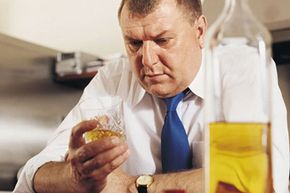If a beloved family member or friend is in the throes of drug or alcohol addiction, it's very likely that you want to help them. But where do you start? You're worried about your family member, you're scared of what others will think, you're afraid of how your life will change and you feel really isolated by all of these feelings and the helplessness that ensues. You're not alone -- addiction commonly frightens families into secrecy and silence. For both the addict and his or her family members, having a problem with drugs or alcohol feels shameful. This is because many people aren't aware that addiction is a disease, like diabetes or cancer. It's a disease of the brain that takes over the personality and the ability to function in life, and it needs to be treated as such. Here are some first steps to take in getting the help you need for both your loved one and yourself.
Advertisement
